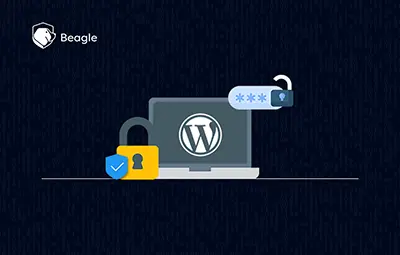
What is WordPress blind SQL injection?
WordPress blind SQL injection is a type of security vulnerability that occurs when an attacker can execute arbitrary SQL code on a WordPress database without the results of the query being directly visible to them.
This happens due to improper sanitization of user input in WordPress plugins, themes, or core files, allowing malicious SQL commands to be injected and executed.
What are the different kinds of blind SQL injection?
In a blind SQL injection attack, the attacker usually sends a series of payloads to the application and infers the results based on the application’s behavior rather than directly observing the database output. There are two primary types of blind SQL injection:
Boolean-based blind SQL injection: The attacker injects SQL code that forces the database to return a Boolean value (true or false). The attacker can then observe changes in the application’s response (e.g., different webpage content or HTTP status codes) to infer whether the query condition was true or false.
Time-based blind SQL injection: The attacker injects SQL commands that include time delays. By measuring how long it takes for the application to respond, the attacker can determine whether a certain condition is true based on the presence or absence of the delay.
Both techniques allow attackers to extract sensitive information, such as usernames, passwords, and other data, or to compromise the integrity of the database.
What are the impacts of blind SQL injection vulnerability?
The impacts of a blind SQL injection vulnerability in WordPress can be severe and far-reaching, potentially affecting both the website and its users.
1. Data breach
Attackers can extract sensitive information from the database, such as user credentials, personal data, and financial information. This can lead to identity theft, financial loss, and legal consequences for the site owner.
2. Data manipulation
Attackers can modify or delete data in the database, compromising the integrity of the website. This can result in corrupted data, loss of critical information, and disruption of services.
3. Unauthorized access
By exploiting SQL injection, attackers can gain administrative access to the WordPress site, allowing them to take control of the website, install malicious software, and further compromise the system.
4. Reputation damage
A successful attack can tarnish the reputation of the website and its owners. Users may lose trust in the site’s security, leading to decreased traffic, customer loss, and negative publicity.
5. Financial loss
Direct financial impacts can include costs associated with incident response, legal fees, and potential fines for non-compliance with data protection regulations. Indirect financial impacts may arise from lost business and diminished customer trust.
6. Compliance violations
Many organizations must comply with data protection regulations (e.g., GDPR, CCPA). A breach resulting from a SQL injection attack can lead to non-compliance, resulting in substantial fines and legal penalties.
7. Service disruption
Attackers can disrupt website operations by executing long-running queries or deleting critical data, leading to downtime and loss of availability for users.
How can you prevent blind SQL injection?
Preventing blind SQL injection vulnerabilities in WordPress involves implementing a combination of secure coding practices, regular maintenance, and employing security tools. Here are some key strategies to prevent this type of vulnerability:
1. Input validation and sanitization
Ensure all user inputs are validated and sanitized to prevent malicious SQL code from being executed. Use built-in WordPress functions like sanitize_text_field(), esc_sql(), and prepare () to sanitize data before using it in SQL queries.
2. Use prepared statements and parameterized queries
Prepared statements and parameterized queries ensure that SQL code and data are handled separately, making it difficult for attackers to inject malicious SQL code.
3. Keep WordPress, plugins, and themes updated
Regularly update WordPress core, themes, and plugins to ensure any security vulnerabilities are patched. Use reputable plugins and themes from trusted sources.
4. Use security plugins
Install security plugins that can help detect and prevent SQL injection attacks.
5. Least privilege principle
Configure database permissions to ensure that WordPress has only the necessary privileges. Avoid using the database’s root user; instead, create a specific user with limited permissions.
6. Regular security audits and code reviews
Conduct regular security audits and code reviews to identify and fix potential vulnerabilities in the code. Use automated tools to scan for common security issues.
7. Web Application Firewall (WAF)
Implement a web application firewall to filter out malicious requests before they reach the WordPress site. WAF services like Cloudflare, Sucuri, and AWS WAF provide an additional layer of protection.
8. Error handling and logging
Implement proper error handling to avoid exposing sensitive information in error messages. Use logging to monitor and analyze suspicious activities.
9. Secure configuration
Ensure that the WordPress configuration file (wp-config.php) is secure. Set appropriate file permissions and restrict access to this file.
10. Educate developers
Ensure that developers are aware of secure coding practices and the importance of security measures. Regular training and staying updated with the latest security trends can help maintain a secure development environment.
By incorporating these practices, you can significantly reduce the risk of blind SQL injection vulnerabilities and enhance the overall security of your WordPress site.





